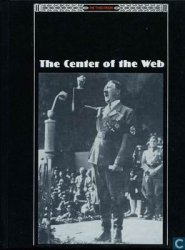This section of the course deals with American history from 1800-1840. It comprises what are referred to as the Jeffersonian and Jacksonian ages. Because of continuing strife in Europe, the administrations of Jefferson and his successor James Madison were still dominated by foreign affairs. The War of 1812, however, coincided with the final years of the Napoleonic wars; Napoleon's defeat at Waterloo in 1815 came just six months after the War of 1812 was concluded. From then until the 1840s domestic issues predominated.
Jeffersonian politics, the politics of the Democratic Republican Party (known as Republicans at that time) dominated through the administrations of Jefferson and Madison. By the end of Madison's term in 1817, the Federalist Party had disappeared, having been discredited by its opposition to the War of 1812. For a time America became essentially a one-party system. James Monroe ran unopposed for president in 1820. Some politicians at that time began referring to themselves as National Democrats, but there was really only one party. Nevertheless, the country was divided by many political issues which we will discuss below.
By 1824 political divisions had begun to reappear in the country. Well before that election took place, five potential presidential candidates had emerged. In the end, John Quincy Adams became president. That controversial election was the last one ever decided in the House of Representatives. By 1828 a new political coalition had begun to form out of the old Democratic Republican party, but this time they were referred to as Democrats. Their leader was Andrew Jackson, who defeated John Quincy Adams in 1828. Jackson's administration began without organized political opposition. Remnants of the old Federalist Party, along with Adams supporters, generally men of a more conservative persuasion, began to call themselves National Republicans. They never coalesced into a formal party, however.
Jackson's resounding victory in 1832 and his defiance of congressional opponents led to the creation of a new political party, the anti-Jacksonians. They called themselves Whigs, a name traditionally used by political groups opposed to autocratic rule. The Whig Party survived until the 1850s, when it broke up over the slavery issue. Many of the issues that divided the Democrats and Whigs during these years, such as the National Bank and protective tariffs, came to a head during the Jackson administration. Jackson's successor, President Martin Van Buren, a Democrat, was defeated by the Whig candidate William Henry Harrison in 1840.
By 1840 the country had changed a great deal. Voting privileges had been extended to virtually all adult white males, and organized political parties began to field candidates for president and vice president on a single slate. The European world was in a period of relative calm, and America was able to develop internally without significant interference from overseas. As the country grew and expanded, domestic politics were typically rough-and-tumble, but lurking barely below the surface of the nation was the institution of slavery, which was dividing the country ever more sharply along sectional lines.
Thomas Jefferson: Founding Father. Jefferson's politics were clearly liberal, according to the meaning of the term in that age, and so were Jackson's. But Jefferson's politics had a sort of elitist overtone. He believed that while republican principles would guide the nation's course, men of superior ability and talent would naturally rise to the surface and become
The leaders—a "natural aristocracy" in Jefferson's terms.26.The age of Jackson, on the other hand, is known as the age of the common man. That belief was symbolized by Jackson himself, who rose from very humble beginnings to the highest office in the land. It is during the age of Jackson that we will see modern ideas of democracy begin to emerge.
Thomas Jefferson is claimed with some justification as a political icon by both liberals and conservatives in modern times, for there were elements of his political philosophy that are consistent with the beliefs of both groups. Yet Jefferson's positions must be viewed both in the context of his own times and in the context of the changes that have occurred over the course of American history. The forces that affect our "pursuit of happiness" have evolved; so must our understanding of Jefferson's idea of the proper role of government in American society. Had Jefferson, for example, foreseen the power of the "robber barons" of the late 19th century, he might have viewed government very differently.

Thomas Jefferson wished to be remembered on his tombstone for three things:
Author of the Declaration of Independence Author of the Virginia Statute on Religious Freedom Founder of the University of Virginia
Jefferson was a true liberal in his pursuit of freedom of speech and religion, the spreading of republican (democratic) values far and wide, and in his general approach to government. He was willing to see blood shed in the cause of freedom, not only during the American Revolution, but as a general principle. On the other hand, he felt that all government was a necessary evil, and that that government which governed best governed least. He was one of the first sponsors of government-supported education for all children, and among his proudest achievements was the founding of the University of Virginia. Jefferson felt that an educated citizenry was the surest way to protect democratic institutions and guard against oppression. He said: "Enlighten the people generally, and tyranny and oppressions of body and mind will vanish like evil spirits at the dawn of day."27
Because politics were often so bitter in early America, they frequently became personal. Jefferson's greatest political rival was Alexander Hamilton. Jefferson opposed the kind of centralization that Hamilton advocated, and he had strongly disagreed with Hamilton's reasoning in the creation of a national bank. Their mutual animosity was personal as well. Jefferson also found himself at odds with George Washington, whom he believed had been duped by Hamilton into following unfortunate policies. He also parted ways with his close friend John Adams, even while serving as Adams's Vice President.
One sad outcome of the political bitterness of the 1790s was the rupture of the friendship between those two giants. Fortunately for posterity, Adams and Jefferson were later reunited in correspondence through the intercession of their mutual friend, Dr. Benjamin Rush, and spent their latter years writing each other about a wide variety of topics. Very little of their correspondence involved past issues. One fascinating letter exchange, how-
Ever, took place between Abigail Adams and Thomas Jefferson. She sent condolences to Jefferson upon the death of his daughter in 1808. Jefferson's response went beyond thanking her, however, and drifted into his disagreements with John Adams. Abigail joined the debate with vigor, and their exchange lasted several months. John Adams knew nothing of it until the end.
July 4, 1826. Adams's last words but his friend had died hours ear Thomas Jefferson and John Adams died on the same day-have been widely quoted as, "Thomas Jefferson survives," lier.




 World History
World History









